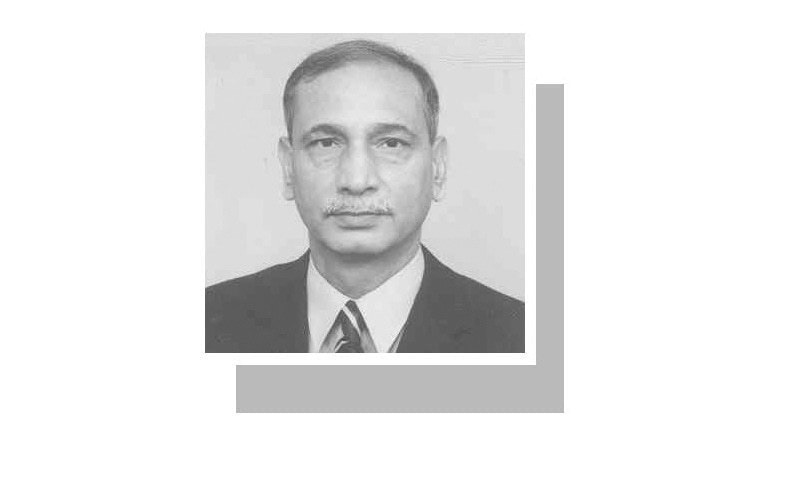By Tariq Khosa
Published in Dawn on July 03, 2023
THE recent drowning of some 300 Pakistanis off the Greek coast, in their attempt to illegally reach Italy, is a national tragedy. This was the third such major incident since February. Keeping in view the UN Protocol against Smuggling of Migrants, 2000, and factors peculiar to Pakistan, a group of independent experts has drafted a 14-point National Action Plan Against Migrant Smuggling (NAPAMS) under the National Initiative against Organised Crime (NIOC) and launched by the Centre of Governance Research (CGR).
Political ownership: The most important step in combating migrant smuggling from Pakistan is to have political ownership of NAPAMS, without which it would be a nonstarter, as it requires migrant smuggling-specific legislation, provision of adequate resources and greater coordination between government departments. NAPAMS should have the federal cabinet’s approval.
Threat assessment: Prescribing long- and short-term measures to combat migrant smuggling has to be preceded by an evidence-based threat assessment. Understanding the dynamics of migrant smuggling, substantiated by data, is essential to be better able to respond.
Awareness: Human smugglers take advantage of people’s lack of awareness about the illegal, risky nature of migrant smuggling. A well-thought-out awareness campaign, tailored to the respective victim audiences, may be designed and implemented on a sustained basis.
The cabinet should approve the National Action Plan Against Migrant Smuggling.
Prosecution: In Pakistan, prosecution of migrant smuggler networks is a weak area in the enforcement of anti-migrant smuggling laws. A holistic performance audit is needed of the existing law (Prevention of Smuggling of Migrants Act [PSMA], 2018) and enforcement mechanisms against migrant smuggling, including the enforcers (FIA, Coast Guards, FC/Rangers), prosecutors, courts, witness protection, rehabilitation of victims, etc. Based on this, the needed changes may be made to existing laws and the criminal justice system.
Victim protection: Migrants who get caught should be treated as victims, as visualised in the UNTOC Protocol on Smuggling of Migrants. Efforts should be made to rehabilitate them, as laid down in PSMA 2018.
Witness protection: Migrant smuggling is carried out by powerful, organised criminal groups. Witnesses are reluctant to come forward to give evidence. This requires an effective witness protection programme in major migrant smuggling cases.
Anti-money laundering: Migrant smugglers, like others of their ilk, must launder their profits. Financial investigations of all migrant smuggling networks must be carried out. This requires the strict application of the Anti-Money Laundering Act, 2010, and integrating the provisions of AMLA 2010 with those of PSMA 2018.
Anti-corruption: Migrant smuggling is difficult to carry out without government employees’ corruption. All employees in FIA, Coast Guards, etc found involved must be given exemplary punishment. The law’s anti-corruption provisions should be integrated into PSMA 2018.
Socioeconomic measures: The primary driver of victims of migrant smuggling is poverty and joblessness. Also it seems that victims belong to specific areas; for instance, it seems that around 90 per cent of victims of migrant smuggling going to Europe via the Iran-Turkey route belong to Gujranwala Division and some areas in AJK — places from where many have gone abroad earlier, and who serve as magnets for their families, friends and acquaintances. Poorer victims tend to cross over from Pakistan into Iran via Balochistan and from there sail to Oman, travelling onwards by foot to Dubai. The rates of migrant smugglers for this route are lower. Most of these victims belong to parts of KP, Sindh and south Punjab districts. These areas need to be identified, with more targeted steps taken to improve employment prospects.
Legal employment abroad: It is believed that since the legal ways of emigration are difficult, people resort to illegal ways to reach greener pastures. The performance of the Emigration Protection Bureau and the procedures to allow people to go abroad for employment must be evaluated
Border control: Effective border control is an essential component of combating human smuggling: FIA for airports, Coast Guard for sea routes and FC/ Rangers for land exits. A holistic exercise should be carried out to evaluate their requirements in terms of capacity building and a three-year plan launched to meet these. This step should be accompanied by better monitoring of their performance and ruthless accountability of those involved in migrant smuggling.
International cooperation: Unless all the concerned countries — of origin, transit and destination — cooperate, the effort against migrant smuggling is unlikely to succeed. Regional cooperation is required to deal with specific areas of human smuggling. For instance, to deal with human smuggling from Afghanistan/ Pakistan to Europe via land, a regional group of four countries like Pakistan, Iran, Turkey and Greece can be formed. A quadrilateral group to deal with human smuggling comprising Pakistan, Iran, Turkey and Greece, was set up in 2006. It had one meeting in Athens, followed by one in Islamabad, but then withered away. It must be revived.
Similarly, to deal with human smuggling by sea from Pakistan to Oman onwards to Dubai, another four-nation group may be formed comprising Pakistan, Iran, Oman and UAE. Previously, smuggling of child camel jockeys from Pakistan to UAE, was successfully combated by a joint effort by UAE and Pakistan. While in Pakistan FIA stepped up action against smugglers who sent these kids abroad, UAE clamped down on those of its citizens who used them as jockeys, thus reducing demand.
Implementation & monitoring: Specific implementation plans should be drawn up on each of the measures mentioned, by a national steering committee led by the interior minister, with members from the finance and law ministries. They can co-opt any other members they consider appropriate. Any department not taking it seriously should be brought to the notice of the PM. Under the committee, the NSC should be a joint task force headed by the FIA, with Coast Guards and FC Balochistan as members. A joint task force should monitor NAPAMS’ implementation monthly.
Review: The plan shall be reviewed after a year of implementation in light of feedback received from the relevant quarters and adjusted accordingly.






